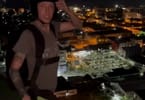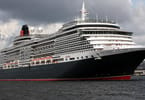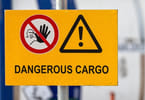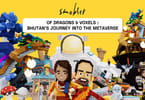MAALAEA (MAUI), HI – Pacific Whale Foundation is proud to announce the continuation of the Onsite Coral Reef Naturalist Program at Ulua Beach in Wailea, on the island of Maui. The program, which posts a trained, experienced naturalist at a popular snorkeling and diving destination, offers visitors a unique opportunity to learn about the animals they spot while snorkeling and what they can do to help protect the reef in a friendly, helpful, and personalized way.
Grant funding through Hawaii Tourism Authority, permitting through the Department of Land and Natural Resources and the County of Maui Parks and Recreation Department, and the gracious support of the Wailea Community Association, have allowed Pacific Whale Foundation to provide the Coral Reef Naturalist Program as an accessible educational tool that encourages responsible enjoyment of the beach and reef. This free service, which has been in operation since 2006, is available every Monday through Friday from 8:00 am through noon.
The goal of the Onsite Coral Reef Naturalist Station is to promote environmentally-friendly use of Ulua Beach and other Maui reefs. The naturalist provides tips on protecting the reef, information (including pictures and reference books) on commonly-seen reef animals, and reef-safe sunscreen offered at no charge to all beachgoers. “The program makes environmental education accessible to the public,” said Pacific Whale Foundation conservation director Brooke Porter. “It addresses ocean users’ concerns while providing live interpretation and offering follow-up activities to reinforce their experience.”
“This program addresses the very real problem of coral reef health at the point of impact,” added Pacific Whale Foundation education director Merrill Kaufman.
“Given the high volume of visitors and locals who frequent this reef, we’ve found that it is extremely important to have a regular naturalist presence in the area,” said Pacific Whale Foundation president Greg Kaufman. “These visitors come here to appreciate the beauty and bounty of the reef. They certainly don’t mean to cause any harm, but most are not aware of how easily their actions can damage the reef. People really appreciate having a friendly, informed naturalist on site, as opposed to just relying on posted informational signs, brochures, or guide books, to help them learn what they can do to help protect the reef.”
Passing on simple tips such as asking snorkelers not to stand on coral, to refrain from feeding fish, and to stay 10 feet from turtles, helps visitors become more responsible reef guests. On average, the naturalists talk to 50-75 visitors from around the world each morning. Some of these are repeat visitors like Sherry Caplinger of Granite Bay, California, who wrote in the guest book: “We are back almost everyday when at our condo in Wailea!”
Many return to let the naturalists know that they have enthusiastically adopted the suggested responsible reef practices and passed them on to others, as well as making efforts to adopt more conservation-minded habits back home. People seem genuinely grateful for the information and advice, with responses generally echoing the sentiments of Margaret and Derek from Hawksley, California: “We love your service; the people are so friendly and informative. Thank you!”
The naturalists also note the delight and excitement of the many children who love to ask them questions and learn about marine life and the marine environment. For many visiting children, the Naturalist Station represents a singular opportunity to experience and learn about the marine environment firsthand. According to long-time Ulua Beach naturalist Bob Vough, “More than once we have had families with children that we educated return to the island months later and tell us that ever since their vacation to Hawaii, their children have developed a deep interest in and appreciation for the environment, and they want to learn more and more about marine life and ways to protect it. Apparently what visitors learn at the onsite coral reef naturalist station leaves quite an impression on them.”
The Onsite Coral Reef Naturalist Program has thus far proved extremely effective as a means of protecting the fragile marine ecosystem from unnecessary harm by providing information in a manner that is truly accessible to visitors and locals, and reflects the aloha of Hawaii. “We want to encourage everyone to explore the amazing marine life we have all around us,” said Merrill Kaufman. “We want to help ocean users to be safe and confident and to really enjoy their time in nature. Opportunities like these are far too few in our busy, indoor lives. Connecting to nature is rejuvenating and transformative.”
This is just one of many projects Pacific Whale Foundation undertakes in partnership with non-profit and government agencies. Others currently in operation include working with the Whale and Dolphin Conservation Society, partnering with Monterey Bay Aquarium on the Seafood Watch sustainable seafood program, and working with agencies such as Haleakala National Park, Maui Coastal Land Trust, Malama Honokowai, and Community Work Day on the Volunteering on Vacation programs. For more information on these and other Pacific Whale Foundation programs, call 808-249-8811 ext. 1, or visit www.pacificwhale.org .
WHAT TO TAKE AWAY FROM THIS ARTICLE:
- Grant funding through Hawaii Tourism Authority, permitting through the Department of Land and Natural Resources and the County of Maui Parks and Recreation Department, and the gracious support of the Wailea Community Association, have allowed Pacific Whale Foundation to provide the Coral Reef Naturalist Program as an accessible educational tool that encourages responsible enjoyment of the beach and reef.
- According to long-time Ulua Beach naturalist Bob Vough, “More than once we have had families with children that we educated return to the island months later and tell us that ever since their vacation to Hawaii, their children have developed a deep interest in and appreciation for the environment, and they want to learn more and more about marine life and ways to protect it.
- The program, which posts a trained, experienced naturalist at a popular snorkeling and diving destination, offers visitors a unique opportunity to learn about the animals they spot while snorkeling and what they can do to help protect the reef in a friendly, helpful, and personalized way.






















